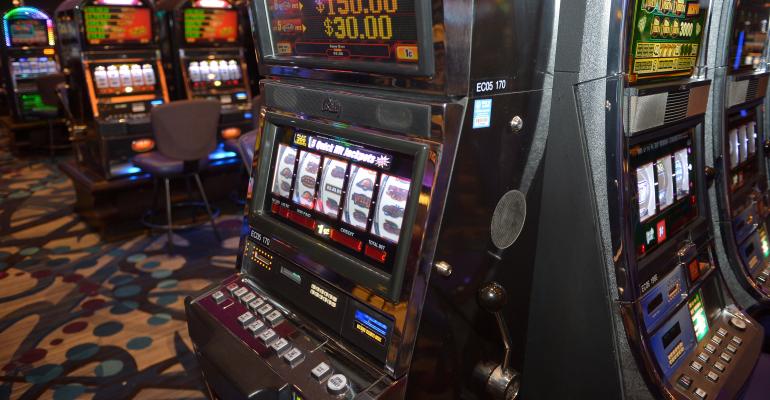In early February, VICI Properties Inc. took a gamble on the stock market and hit the jackpot. The gaming REIT’s IPO raised about $1.4 billion, making it one of the largest IPOs thus far in 2018 and one of the largest REIT IPOs ever.
The IPO for the Las Vegas-based company happened just four months after its spin-off from Caesars Entertainment Operating Co., a subsidiary of gaming giant Caesars Entertainment Corp. that emerged from Chapter 11 bankruptcy protection in October 2017. On a pro forma basis, VICI Properties would have posted revenue of $762.6 million in 2016 and profit of $433.9 million.
About a month before the IPO, Las Vegas-based gaming REIT MGM Growth Properties LLC made an unsolicited $19.50-a-share bid to buy VICI—a nearly $5.9 billion offer that VICI rejected. For the record, VICI’s IPO debuted at $20 per share and closed the first day of trading just shy of $21 per share.
VICI, now the third gaming REIT in the U.S., owns 20 Caesars gaming properties around the U.S., including Harrah’s Las Vegas, Caesars Palace and four racetracks. Caesars operates the properties through lease-back deals with VICI. In addition, VICI owns and operates four golf courses. Another part of VICI’s portfolio is two undeveloped parcels along the Las Vegas Strip.
In this Q&A with NREI, REIT veteran Ed Pitoniak, CEO of VICI, discusses growth prospects for the “experiential asset” REIT, the lessons he wants institutional investors to learn about gaming REITs and the possibility of expanding beyond gaming properties.
The Q&A has been edited for length, style and clarity.
NREI: How would you describe the strategy going forward in terms of growing the company?
Pitoniak: We have two fundamental relationships we focus on. One is the relationship with both our existing tenant and potential future tenants. Our existing tenant obviously is Caesars, with whom we’re very proud to be partnered. We think they’re the best national gaming operator in America. And then we will also, over time, look to grow our tenant base through relationships with other U.S. gaming companies. We think our independence, our standalone nature—which is unique to us as a gaming REIT—will provide a path to growth that will be the strongest in the sector.
The other opportunity we have is to continue to help institutional investment capital, especially REIT-dedicated investors, better understand the nature, quality, integrity and durability of the real estate cash flows that come out of these assets. It’s still quite a new sector by REIT standards. Our predecessors—Gaming and Leisure Properties Inc. and MGM Growth Properties—have done a very good job of getting the sector started. What we’d like to contribute is further driving the institutionalization of the sector so that institutional capital becomes very confident in the quality and durability of our real estate cash flows.
NREI: Are you exclusively tied to Caesars?
Pitoniak: We have an independent arm’s-length relationship. There’s no board overlap between Caesars and VICI. There’s no Caesars ownership of the REIT. There’s no management overlap. We’re capable of developing relationships across the sector. We think our independence will be a vital ingredient in developing those relationships and having them lead to property acquisitions on our part.
NREI: Are you looking at acquisitions and development? What options are on the table?
Pitoniak: As a REIT dedicated to distributing income to our investors, we, frankly, will be not doing much, if anything, in the way of development. Development involves taking development risk and it means deploying capital during a period in which you are not getting income back on the deployment of that capital, so we will concentrate very much on properties that are well-stabilized and that have good income quality.
NREI: Is that primarily casino properties? Or are you thinking of branching out beyond that?
Pitoniak: For the time being, we’re going to be focused very much on gaming. We think that it is a sector in which the real estate cash flows are not fully understood, and because they’re not fully understood, we don’t think they’re fully valued. We believe there’s great value to be had for our investors in continuing to invest in gaming real estate. There may come a day when we will have mined most all of the high-grade ore out of gaming, and at that time we will investigate adjacent leisure and hospitality sectors.
NREI: Geographically, is your focus mostly on Las Vegas? Or would you entertain opportunities outside Vegas?
Pitoniak: We certainly like the Las Vegas market, and certainly we were happy to increase our exposure to the Las Vegas market through the acquisition of Harrah’s Las Vegas in December (for nearly $1.14 billion). Yet we’re also very happy to be invested in the regional assets that Caesars operates, because those regional assets have a stability to them through all cycles, including even a financial crisis, that we think is very valuable to a REIT. A well-designed REIT should be able to distribute its cash through all cycles, and what the regional properties especially give us is confidence that these are assets that, even when back-tested against the financial crisis, are very capable of covering their rent.
NREI: Looking ahead, perhaps five years from now, where do you see VICI being?
Pitoniak: Within the next five years, you will see VICI having grown and continuing to improve its portfolio through the investment in and the acquisition of assets across the country that have the kind of real estate investment characteristics we’re so happy with in our existing portfolio. Over the next five years, you will also see us diversify our tenant base such that we have not only Caesars but other great gaming companies for whom we can be a great real estate partner.
Beyond that, we will by then perhaps be looking at creative opportunities outside gaming. We will take great care in making any investments outside gaming, recognizing that probably would increase the risk profile and our investors will need to be compensated for that risk.

